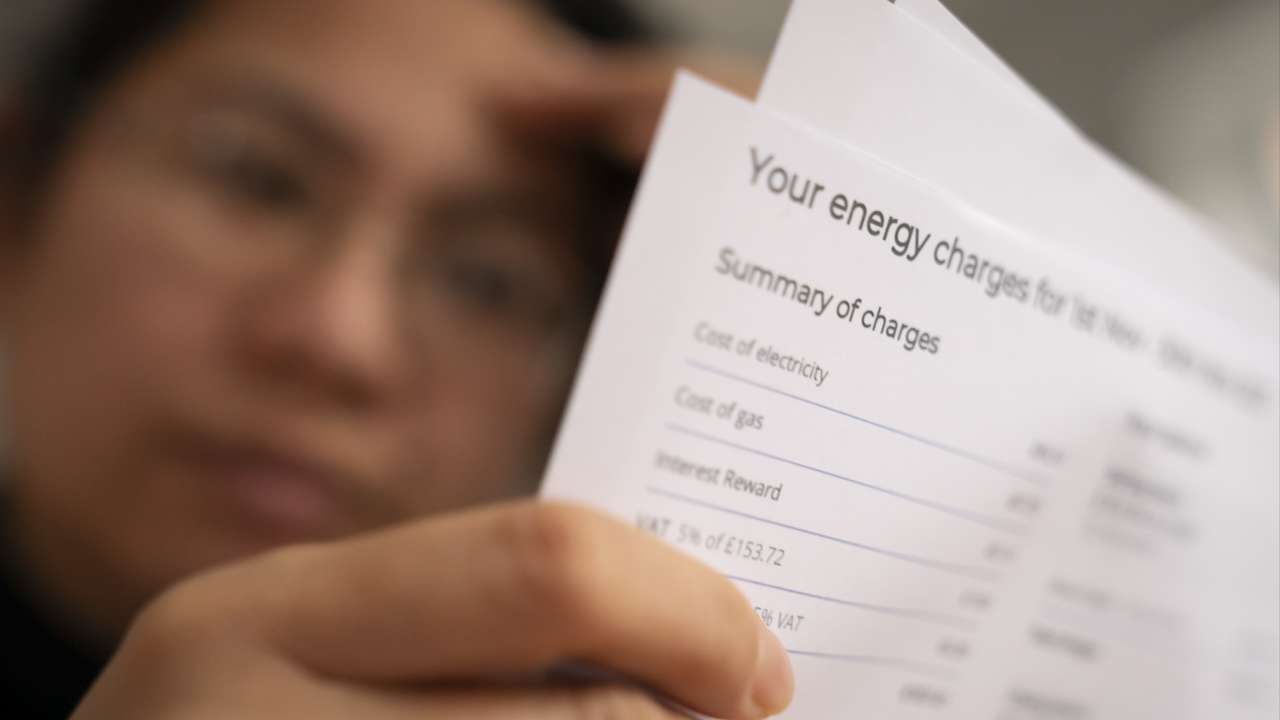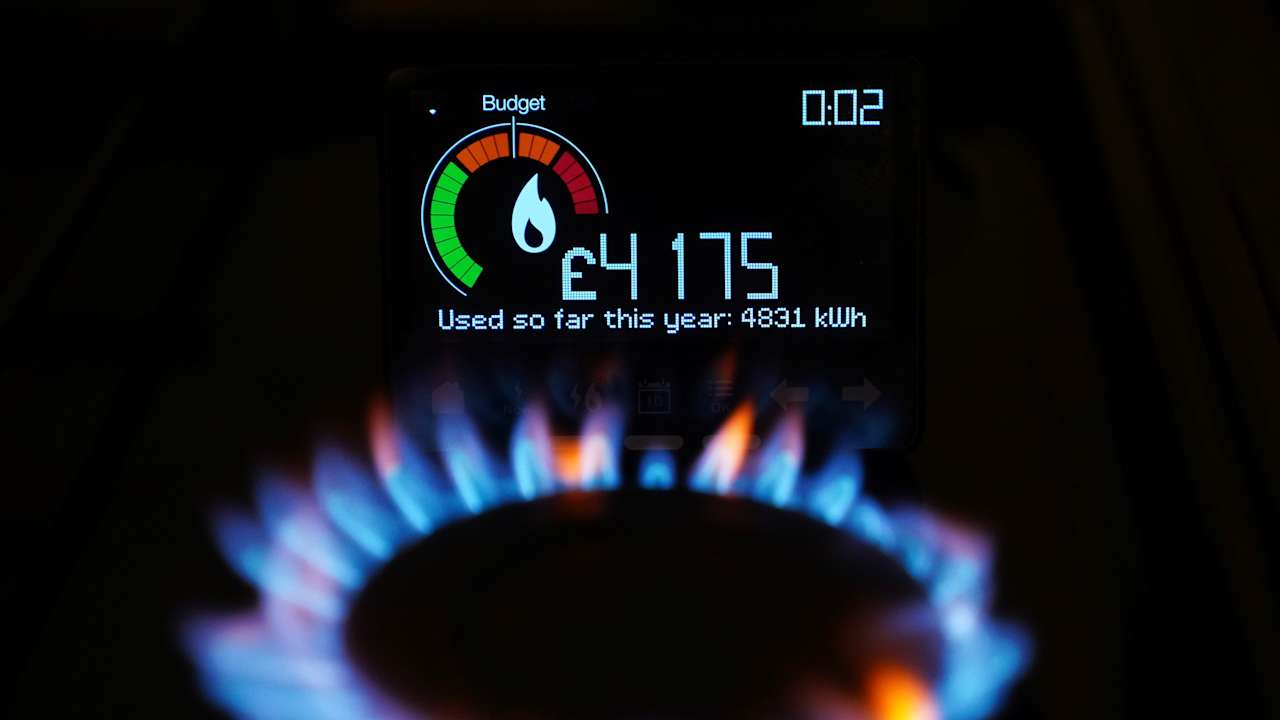More than 300,000 homes are at risk of losing their hot water and heating when their electricity meters are switched off on June 30, the industry has said.
Energy companies have admitted that current rates of replacement mean it is likely that thousands of Radio Teleswitching System (RTS) meters will not have been upgraded before the technology is switched off.
The RTS system – used by older electricity meters to control heating and hot water – uses a longwave radio frequency to switch between peak and off-peak rates.
However the technology is becoming obsolete and energy companies have a deadline to change their customers’ meters by June 30.
A spokesperson for Energy UK, which represents energy firms, told ITV News their most up to date assessment estimated around 411,000 households remained on an RTS meter and more than 1,000 were being replaced each day.
Campaigners said this implies that more than 300,000 households could be left with a meter which does not work from July 1.
Most homes have standard meters and will not be affected, whether or not they have a smart meter.
What’s an RTS meter and why are they used?
The RTS uses radio signals to switch electricity meters between peak and off-peak tariffs.
These meters can also be used to automatically turn on electric heating systems and hot water storage tanks which usually charge up overnight when the energy is cheaper.
The system was introduced in the 1980s but as it is now past the age at which it can be effectively maintained it is due to be switched off at the end of June, rendering old energy meters obsolete.
Campaign group, Fuel Poverty Action, estimates there are currently 300,000 RTS meters still in use, all people who could be hit with the higher bills should these meters stop working.
Many houses have already had these replaced with newer smart meters which can provide information to energy companies automatically and provide real-time information to households on their energy use.

Where’s worst effected?
The numbers of old RTS meters vary greatly across the country with rural areas like Northern Scotland some of the worst effected.
Energy UK estimates the following numbers of old meters are in each UK region:
Northern Scotland – 64,959
Southern Scotland – 64,855
London – 57,874
East Midlands – 31,652
Merseyside and Northern Wales – 2,429
Southern Wales – 8,129
North East England – 12,222
North Western England – 17,722
Northern Ireland – 1
South Eastern England – 58,992
South England – 21,643
South Western England – 21,859
West Midlands – 17,084
Yorkshire – 5,979
Grand Total – 411,318
At a current rate of around 1,000 installations a day, it would take energy companies over a year to finish replacing the entire country.
To meet the deadline of June 30 they would have to work seven times faster, increasing this to 7,000 a day.

What are the risks?
Simon Francis of End Fuel Poverty Coalition, is concerned not enough is being done to address the lack of progress ahead of the switch off deadline.
He said: “With pressures on the replacement programme growing and with limited engineer availability, especially in rural areas, there’s a real risk of prolonged disruption, particularly for vulnerable households.
“Government, regulators and energy firms need to face up to the looming crisis and ramp up efforts to help people switch. At the same time we now need to ensure contingency measures are in place for those who do not make the deadline and require energy suppliers to ensure fair metering and billing practices.”
Because RTS meters are responsible for switching between peak and off-peak tariffs there’s a chance consumers get left on a higher rate when the signal is turned off.
RTS meters responsible for controlling a house’s heating could also result in the system being stuck either permanently on or off.
The meters tend to control household electricity separately to heating and hot water meaning lights and plug sockets would still function although potentially on the higher rate.
End Fuel Poverty Coalition have written a letter to the government warning them of a “looming crisis” and urging action from themselves and Ofgem.
How do you know if you have an RTS meter?
If you heat your house using electricity, have electric storage and water heaters, or get cheaper energy at different times of the day you might have an RTS meter.
Houses with no gas supply, including high rise flats and those in rural areas, are also likely to have the old type of RTS meter.
Your teleswitch is usually black and in the same box as your meter – it may have “radio teleswitch” or “radio telemeter” printed on it.
You can also contact your energy supplier to find out which type of meter you have or use citizen advice’s online tool to check.
Ofgem, who regulate energy companies, say they expect electricity suppliers to replace all RTS meters with smart ones before the June 30 deadline.
They say energy providers should reach out to you to arrange the upgrade and must make sure consumers do not experience disruptions to their service.
A spokesperson for Energy UK said: “Suppliers have been pulling out all the stops to replace the remaining RTS meters as soon as possible. Suppliers continue to contact customers directly through multiple channels, in addition to extensive outreach and advertising campaigns in partnership with local authorities, consumer groups and Ofgem.
“Our main focus is on stepping up installation rates further – currently over 1,000 a day – and continuing this momentum ahead of the deadline. It will undoubtedly be challenging to replace all these meters by the June 30th date – it means getting access to every single property to carry out the installation, many of which are in remote areas, which can make both initial contact and arranging the replacement difficult, and ultimately it requires all customers to respond to contact from their supplier.
“So we urge remaining RTS customers to contact their supplier without delay to arrange a replacement and ensure a smooth switchover that enables their heating and hot water to continue operating in the same way. But we are also working closely with the Government and regulator on a carefully managed phase down process to avoid disruption to any remaining customers, particularly those in vulnerable circumstances.”
Follow STV News on WhatsApp
Scan the QR code on your mobile device for all the latest news from around the country




























